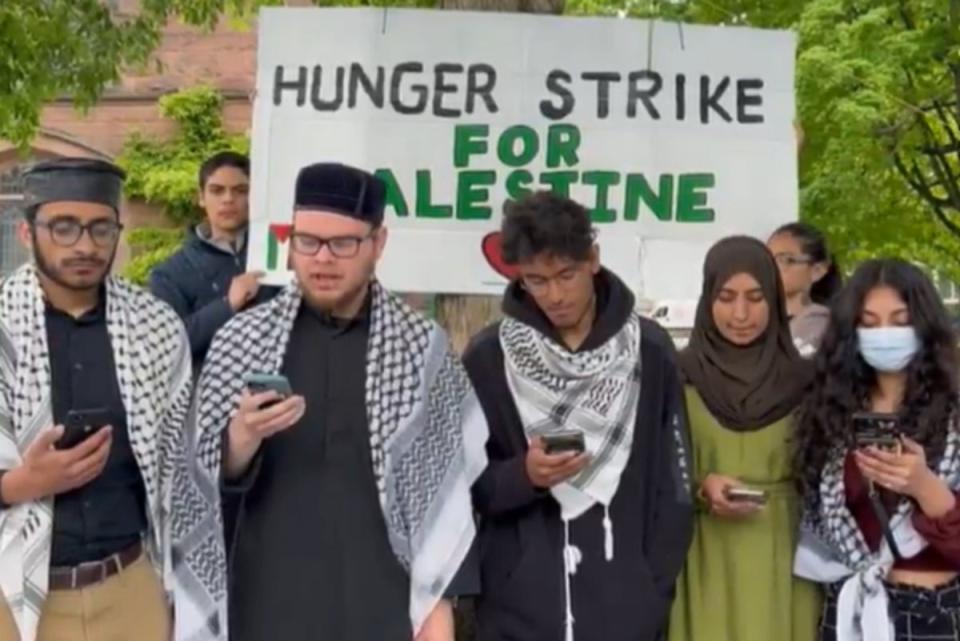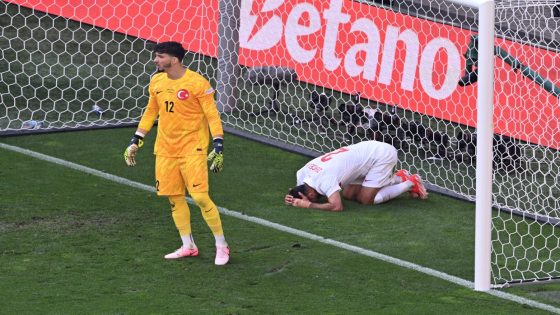More than a dozen Princeton University students began a hunger strike on Friday in solidarity with Palestinians in Gaza as university campuses in the US continue to see a wave of protest against Israel’s war in the territory.
“Our hunger strike is a response to the administration’s refusal to engage with our demands for dissociation and divestment from Israel. We refuse to be silenced by the University administration’s intimidation and repression tactics. We struggle together in solidarity with the people of Palestine. We commit our bodies to their liberation,” one striker said in a video statement posted on Princeton Israeli Apartheid Divest’s X account on Friday.
The strikers added that they are drawing their protest from the tradition of Palestinian political protestors going on saltwater-only hunger strikes in Israeli prisons since 1968.
Fourteen students began the hunger strike on Friday morning, the group said, with the number rising to 17 students, with 15 continuing into its third day, according toThe Daily Princetonian, the student news publication at the university.
The group has also invited members of the Princeton community to join them in the hunger strike, asking them to sign up for solidarity fasts that will last 24 hours or the full hunger strike.
The strikers are demanding that the univsetiy will meet with students to discuss their demands for “disclosure, divestment and cultural boycott of Israel.”
They are also asking for complete amnesty from all criminal and disciplinary charges for participants of the peaceful sit-in, as well as reversing all campus bands and evictions of students.

“Our demands are not that intense,” David Chmielewski, one of the strikers, told the outlet. “They’re simply to have a meeting and to grant amnesty to the students who are arrested and are being impacted through the disciplinary process.”
The activist group reposted a post on X claiming that as the third day of the hunger strike continues, the university’s administration refuses the strikers to have tents, leaving them huddled under umbrellas.
The group added that counter-protestors tour down their signs while also claiming that public safety officers have “repeatedly harassed” them, refusing them to rest.
University spokesperson Jennifer Morrill wrote in a statement to The Daily Princetonian that Melissa Marks, the director of medical services at University Health Services (UHS), visited strikers on Friday and Sunday and has been in contact with one of the doctors monitoring the group.
“We care about their well-being,” Ms Morrill wrote.
The strikers also told the publication that they have a medical team on call around the clock, were checked for risk factors prior to the beginning of the strike and have had their vitals taken twice a day.
While Ms Morill did not address specifically the strikers’ demands, she added that “University administrators are always willing to meet with students to discuss their ideas and concerns when they request such conversations through the channels available to all members of the community.”
She also said to the outlet that the university offered on Friday for protesters to use the tent in McCosh Courtyard.
The hunger strike comes after 13 people were arrested last week following a “brief” occupation of Clio Hall on the university’s New Jersey campus.
Five undergraduates, six graduate students, one postdoctoral researcher and one person not affiliated with the university were arrested for trespassing and have been barred from campus, according to a statement from President Christopher Eisgruber. The students also face suspension or expulsion, officials said.
The officials called the incident “completely unacceptable” and stated that they “will continue to work to ensure that this campus is one where all members of the community feel welcome and can thrive.”
The 13 arrested protestors released a joint statement saying that an email from the president to the entire Princeton community was “misleading” and “sensationalizes our roles in a peaceful sit-in”.
“We are now facing potential academic suspension, expulsion, and further criminal charges for peacefully protesting in solidarity with Palestine,” they wrote.
Princeton is one of many universities across the United States that continues to see protests and demonstrations against the war in Gaza, with more than 2,300 people arrested on campuses across the country.
Universities have also started to scale back their commencement ceremonies in response to the protests.
Columbia has cancelled its university-wide commencement ceremony this month for “smaller-scale, school-based celebrations.”Security reasons were noted as the main reason behind the decision, a university official told NBC News.
The University of Southern California also announced that it would not hold its main commencement ceremony next month after protest on its campus in Los Angeles.
Other universities have decided to go ahead with their commencement celebrations, such as the University of Michigan, which saw students demonstrating in solidarity with Gaza as they waved Palestinian flags and chanted during the ceremony on Saturday.
The Independent has contacted Princeton University for comment.
Source Agencies


